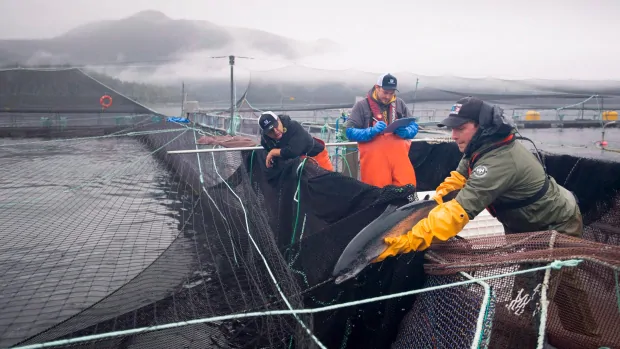Most salmon that escaped in fish farm fire likely eaten by predators, operator says

The owners of a British Columbia facility where thousands of Atlantic salmon escaped following a fire said it is likely predators ate most of the fish.
Mowi Canada West downplayed threats to wild salmon stocks because of the number of sea lions feeding on the 21,000 non-native salmon held in pens there, CoastAlaska reported Thursday.
Mowi Canada West’s fish farm off Robertson Island, north of Vancouver Island, caught fire Dec. 20.
“Judging by the number of sea lions congregating near the involved farm it is likely many have already been eaten by predators,” the company said in a statement. “That said, we take our responsibility to prevent any impacts seriously, and will take every reasonable action to do so.”
Stan Proboszcz of Vancouver-based environmental group Watershed Watch Salmon Society said the escape and a recent mass die-off nearby highlight the risks of raising salmon in sea-based pens.
“Farmed fish can harbour parasites and viruses that can be spread to wild fish,” Proboszcz said. “So that’s one of the big risks that we see with an escape like this.”
Critics want farms phased out
The fire has prompted critics of the industry to call for an end to this kind of farm fishing on the west coast.
Phasing out net-pen fish farming in B.C. waters was a Liberal campaign promise in this year’s federal election. The mandate letter for newly appointed Fisheries Minister Bernadette Jordan directs her to work with the B.C. government and Indigenous communities to create a plan for a transition by 2025.
Gord John, NDP fisheries critic and MP for Courtenay-Alberni MP said in a statement the recent Atlantic escape is proof that the timetable for removing open net-pen farms from Pacific waters needs to be accelerated.
In 2017, hundreds of thousands of Atlantic salmon escaped from a fish farm in Puget Sound, Washington State. The following year, Washington state passed a law ordering the state’s salmon farms to shut down by 2022.





